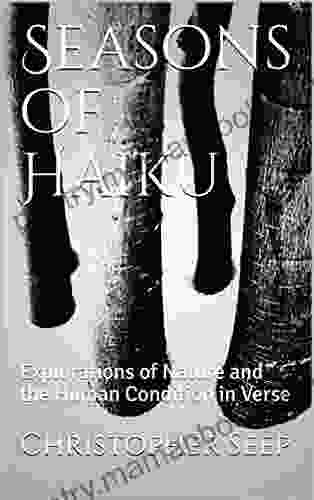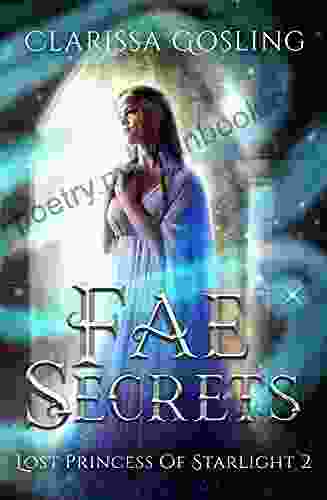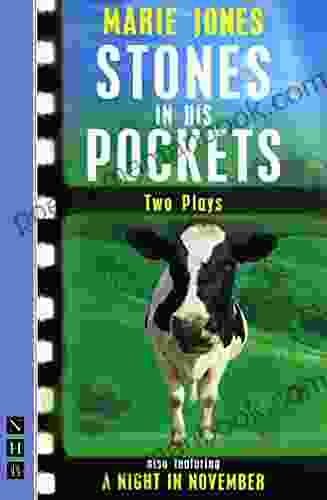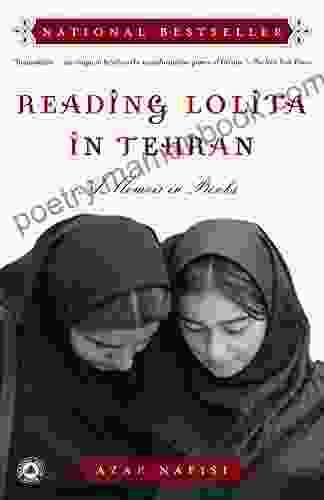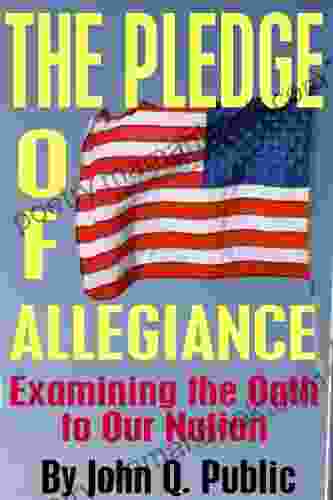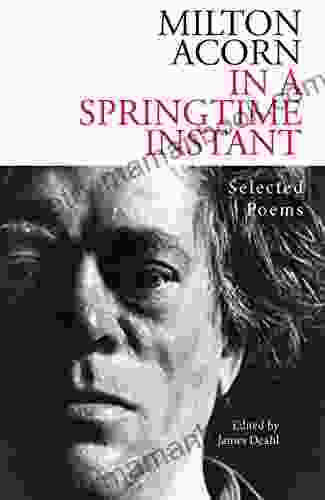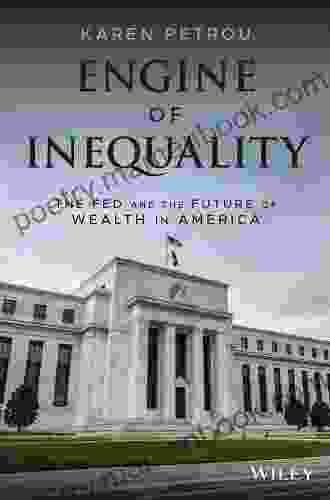Explorations of Nature and the Human Condition in Verse: A Comprehensive Analysis

5 out of 5
| Language | : | English |
| File size | : | 24024 KB |
| Text-to-Speech | : | Enabled |
| Screen Reader | : | Supported |
| Enhanced typesetting | : | Enabled |
| Word Wise | : | Enabled |
| Print length | : | 28 pages |
| Lending | : | Enabled |
Nature has long been a source of inspiration for poets, who have sought to capture its beauty, its power, and its profound influence on our lives.
From the earliest days of poetry, nature has been used as a metaphor for the human condition. In the ancient Greek epic, the Odyssey, Homer compares the hero Odysseus to a tree. The tree is rooted in the earth, just as Odysseus is rooted in his homeland. But the tree is also subject to the storms of life, just as Odysseus is subject to the challenges of his journey.
Over the centuries, poets have continued to explore the relationship between nature and the human condition. In the Romantic era, poets such as William Wordsworth and Samuel Taylor Coleridge celebrated the beauty of nature and its ability to inspire awe and wonder. Wordsworth, in particular, believed that nature was a source of moral and spiritual truth. In his poem "Tintern Abbey," he writes:
One impulse from a vernal wood Could teach you more of man, Of moral evil and of good, Than all the sages can.
In the Victorian era, poets such as Alfred, Lord Tennyson and Robert Browning used nature to explore the darker side of the human condition. Tennyson, in particular, was fascinated by the power of nature to both create and destroy. In his poem "In Memoriam," he writes:
Nature, so cruel in thy decree, And iron law of endless strife; Nature, so kind in granting life, So careful of the type she seems, So careless of the single life.
In the 20th century, poets continued to explore the relationship between nature and the human condition. However, nature was also seen as a source of solace and renewal in the face of the horrors of war and the threat of nuclear annihilation. In his poem "Burnt Norton," T.S. Eliot writes:
Time and the bell have buried the day, The black cloud carries the sun away, Will the sunflower turn to us, will the clematis Stray down, bend to us; bend to us, the bower Rain down till the house shall grow moist To the smell of the underleaf, and the garden Shall be rain after rain, a channel of water Shall gather and then drop into the pool All the gathered water into the pool; And there shall be a fountain in the garden To bless the house, to bless the sleepers there.
Today, poets continue to explore the relationship between nature and the human condition. In the face of climate change and other environmental challenges, poets are increasingly using their voices to raise awareness of the importance of protecting the natural world.
Nature as a Source of Identity
Nature has often been used as a source of identity for both individuals and communities. For example, the ancient Greeks identified themselves with the natural world, and they believed that their gods and goddesses lived in the mountains, forests, and rivers. In the same way, many Native American tribes identify themselves with the animals and plants of their traditional homelands.
Nature can also provide a sense of identity for individuals. In her poem "The Woodchuck," Maxine Kumin writes about her experience of watching a woodchuck in her backyard. Through her observations of the woodchuck, Kumin comes to a deeper understanding of herself and her place in the natural world.
Every day when I go down to the mailbox, I see him sitting on his hind legs in the middle of the driveway as if he owned the place. He watches me approach, and, though I have made no sudden motions to frighten him away, he disappears into a hole under the forsythia bush.
Kumin's poem suggests that the woodchuck is a mirror image of herself. Like the woodchuck, Kumin is a creature of the earth. She is rooted in her home, and she is wary of strangers. However, Kumin is also aware of her own mortality, and she knows that she will eventually die and return to the earth.
I am reminded that in another season the woodchuck will die, of old age, or perhaps from something more sinister —a car, a dog, a child with a pellet gun.
Kumin's poem is a reminder that we are all connected to the natural world. We are all born of the earth, and we will all eventually return to it. Nature can provide us with a sense of identity and a sense of place. It can also remind us of our own mortality and our connection to the larger cycle of life and death.
Nature as a Source of Purpose
Nature can also provide us with a sense of purpose. In his poem "The Road Not Taken," Robert Frost writes about a man who comes to a fork in the road. He must choose which path to take, and he knows that his choice will determine the course of his life.
Two roads diverged in a yellow wood, And sorry I could not travel both And be one traveler, long I stood And looked down one as far as I could To where it bent in the undergrowth;
Then took the other, just as fair, And having perhaps the better claim, Because it was grassy and wanted wear; Though as for that the passing there Had worn them really about the same,
The man in Frost's poem chooses the road less traveled, and he believes that this choice will make all the difference in his life. He believes that by taking the road less traveled, he will find his true purpose.
Nature can provide us with a sense of purpose in many ways. It can teach us about our own strengths and weaknesses. It can help us to connect with our true selves. And it can inspire us to make a difference in the world.
Nature as a Source of Mortality
Nature can also remind us of our own mortality. In his poem "Ozymandias," Percy Bysshe Shelley writes about a statue of the Egyptian pharaoh Ozymandias. The statue is now in ruins, and it is surrounded by a desert wasteland.
I met a traveler from an antique land, Who said—“Two vast and trunkless legs of stone Stand in the desert. . . . Near them, on the sand, Half sunk a shattered visage lies, whose frown, And wrinkled lip, and sneer of cold command, Tell that its sculptor well those passions read Which yet survive, stamped on these lifeless things, The hand that mocked them, and the heart that fed; And on the pedestal, these words appear: ‘My name is Ozymandias, king of kings: Look on my works, ye Mighty, and despair!’ Nothing beside remains. Round the decay Of that colossal wreck, boundless and bare The lone and level sands stretch far away.”
Shelley's poem is a reminder that even the most powerful people are mortal. No matter how great our achievements, we will all eventually die and return to the dust. Nature is a constant reminder of our own mortality, and it can help us to come to terms with our own death.
Nature is a powerful force in our lives. It can provide us with a sense of identity, purpose, and mortality. It can also inspire us to make a difference in the world.
As we face the challenges of the 21st century, it is more important than ever to connect with nature. Nature can help us to find peace, solace, and renewal. It can also help us to remember our place in the larger scheme of things.
5 out of 5
| Language | : | English |
| File size | : | 24024 KB |
| Text-to-Speech | : | Enabled |
| Screen Reader | : | Supported |
| Enhanced typesetting | : | Enabled |
| Word Wise | : | Enabled |
| Print length | : | 28 pages |
| Lending | : | Enabled |
Do you want to contribute by writing guest posts on this blog?
Please contact us and send us a resume of previous articles that you have written.
 Top Book
Top Book Novel
Novel Fiction
Fiction Nonfiction
Nonfiction Literature
Literature Paperback
Paperback Hardcover
Hardcover E-book
E-book Audiobook
Audiobook Bestseller
Bestseller Classic
Classic Mystery
Mystery Thriller
Thriller Romance
Romance Fantasy
Fantasy Science Fiction
Science Fiction Biography
Biography Memoir
Memoir Autobiography
Autobiography Poetry
Poetry Drama
Drama Historical Fiction
Historical Fiction Self-help
Self-help Young Adult
Young Adult Childrens Books
Childrens Books Graphic Novel
Graphic Novel Anthology
Anthology Series
Series Encyclopedia
Encyclopedia Reference
Reference Guidebook
Guidebook Textbook
Textbook Workbook
Workbook Journal
Journal Diary
Diary Manuscript
Manuscript Folio
Folio Pulp Fiction
Pulp Fiction Short Stories
Short Stories Fairy Tales
Fairy Tales Fables
Fables Mythology
Mythology Philosophy
Philosophy Religion
Religion Spirituality
Spirituality Essays
Essays Critique
Critique Commentary
Commentary Glossary
Glossary Bibliography
Bibliography Index
Index Table of Contents
Table of Contents Preface
Preface Introduction
Introduction Foreword
Foreword Afterword
Afterword Appendices
Appendices Annotations
Annotations Footnotes
Footnotes Epilogue
Epilogue Prologue
Prologue Grzegorz W Kolodko
Grzegorz W Kolodko David Mccullough Jr
David Mccullough Jr Princess Marie Chantal Of Greece
Princess Marie Chantal Of Greece Stacy Green
Stacy Green Tracy Wolff
Tracy Wolff K C Kemp
K C Kemp Stephanie L Mcandrews
Stephanie L Mcandrews Wagner Kerchaten
Wagner Kerchaten Tatenda Kangwende
Tatenda Kangwende Graham Ison
Graham Ison Ananish Chaudhuri
Ananish Chaudhuri Christopher Priest
Christopher Priest Tibor Gasparik
Tibor Gasparik Kate Stephens
Kate Stephens Griselda Gambaro
Griselda Gambaro Zain Altaf
Zain Altaf Howland Blackiston
Howland Blackiston N T Franklin
N T Franklin Kindle Edition
Kindle Edition Delphia
Delphia
Light bulbAdvertise smarter! Our strategic ad space ensures maximum exposure. Reserve your spot today!
 Gavin MitchellFollow ·16.9k
Gavin MitchellFollow ·16.9k Jeff FosterFollow ·14.1k
Jeff FosterFollow ·14.1k Edwin BlairFollow ·5.5k
Edwin BlairFollow ·5.5k Reginald CoxFollow ·3.1k
Reginald CoxFollow ·3.1k Robert Louis StevensonFollow ·15.7k
Robert Louis StevensonFollow ·15.7k Curtis StewartFollow ·6.1k
Curtis StewartFollow ·6.1k Haruki MurakamiFollow ·18.1k
Haruki MurakamiFollow ·18.1k Leo TolstoyFollow ·4.9k
Leo TolstoyFollow ·4.9k
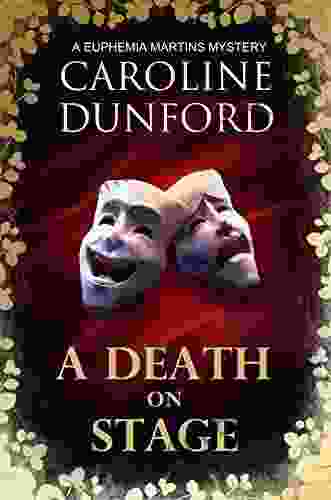
 Patrick Hayes
Patrick HayesDeath on Stage: Euphemia Martins Mystery 16
Synopsis In the...

 Benji Powell
Benji Powell1001 Best Baking Recipes Of All Time
Baking is a fun and...
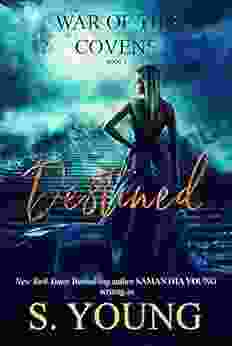
 Terry Bell
Terry BellDestined War of the Covens: A Supernatural Saga of Power,...
Welcome to the...
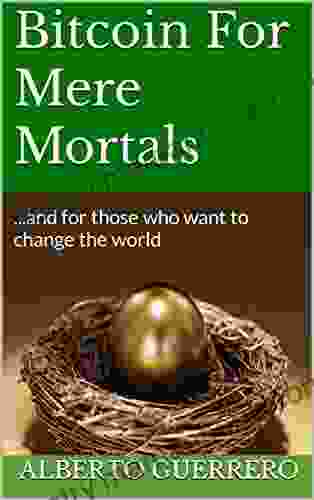
 Mark Twain
Mark TwainBitcoin For Mere Mortals: A Comprehensive Guide for...
Bitcoin is a...

 Dennis Hayes
Dennis HayesThe Best Budget Gaming PC 2024: Build the Ultimate Gaming...
Are you looking to build the best budget...
5 out of 5
| Language | : | English |
| File size | : | 24024 KB |
| Text-to-Speech | : | Enabled |
| Screen Reader | : | Supported |
| Enhanced typesetting | : | Enabled |
| Word Wise | : | Enabled |
| Print length | : | 28 pages |
| Lending | : | Enabled |


